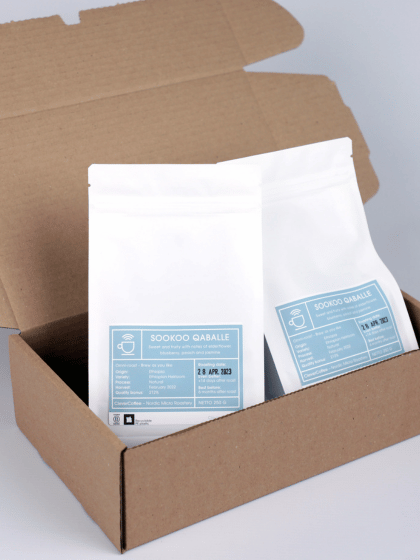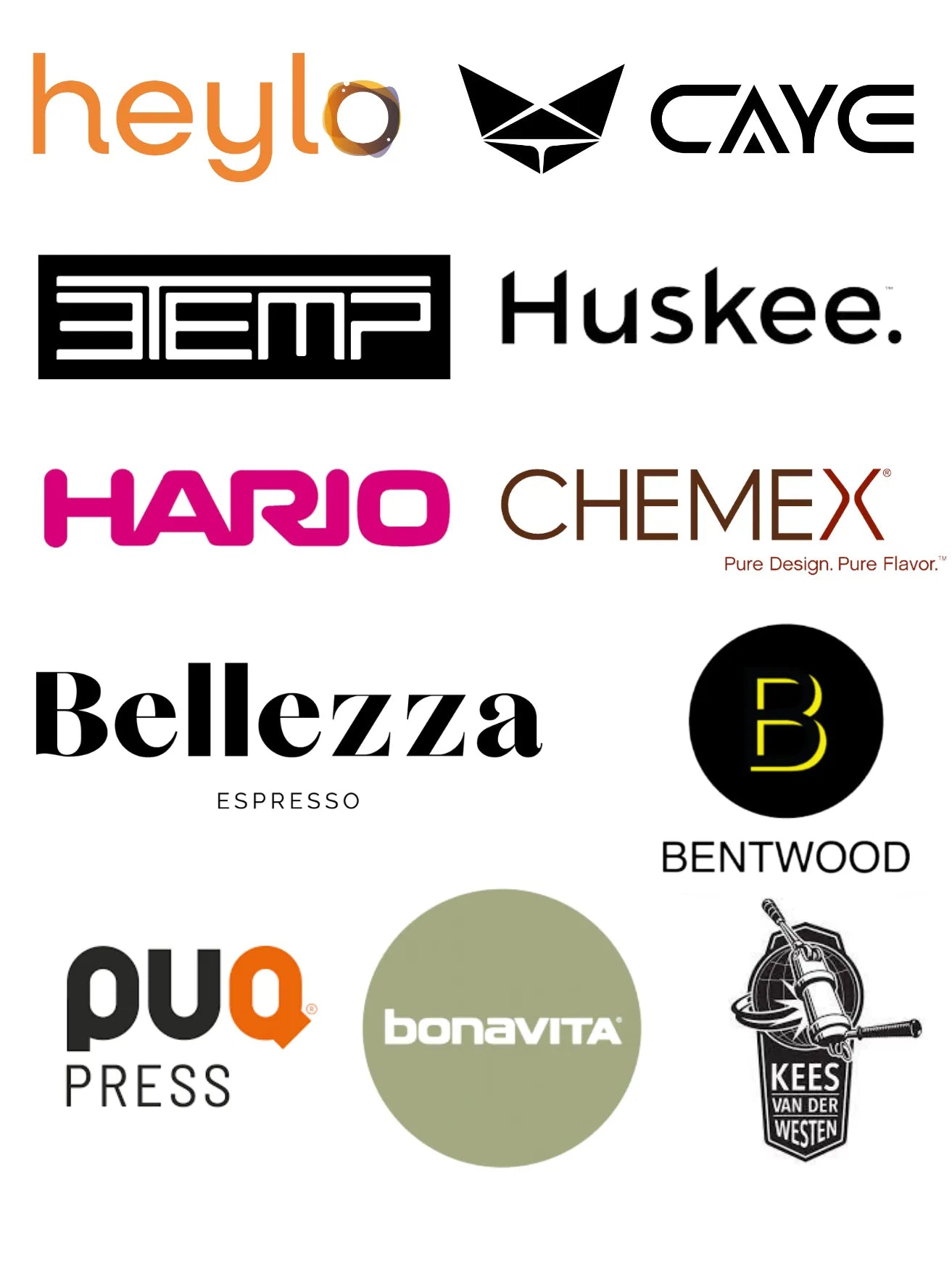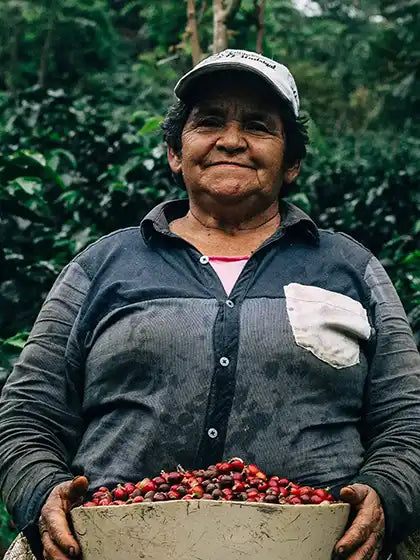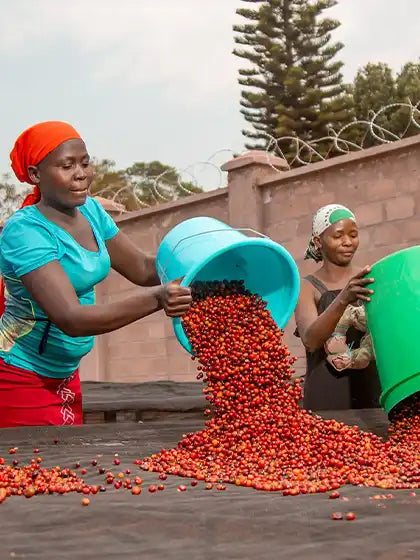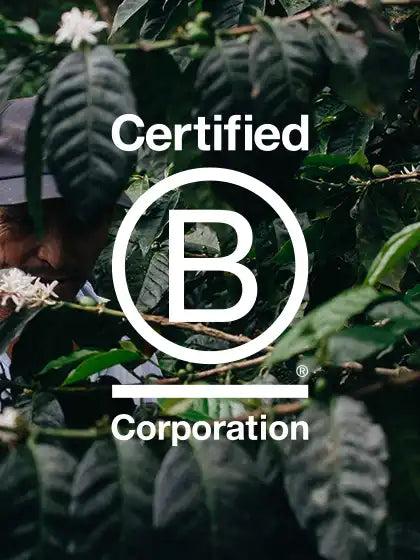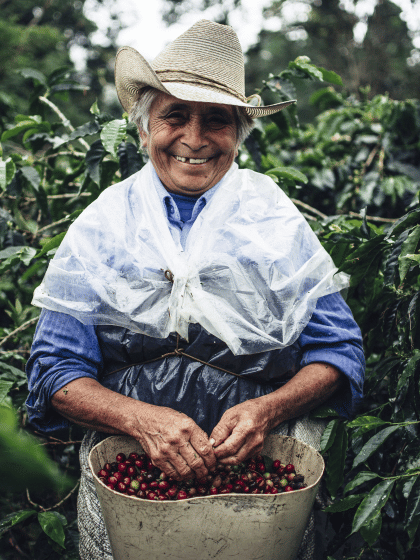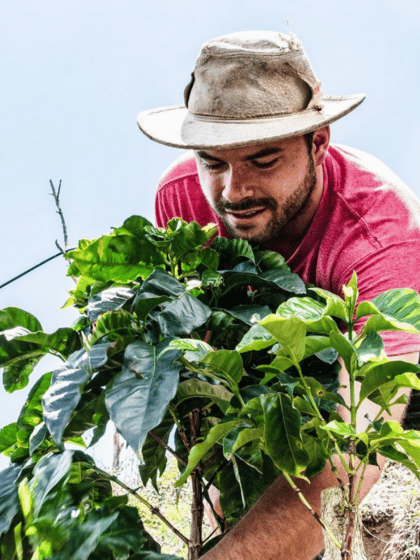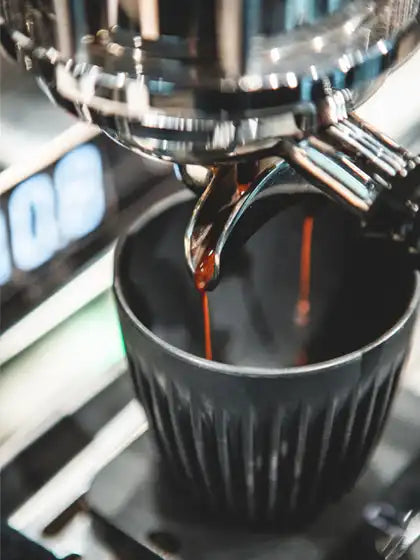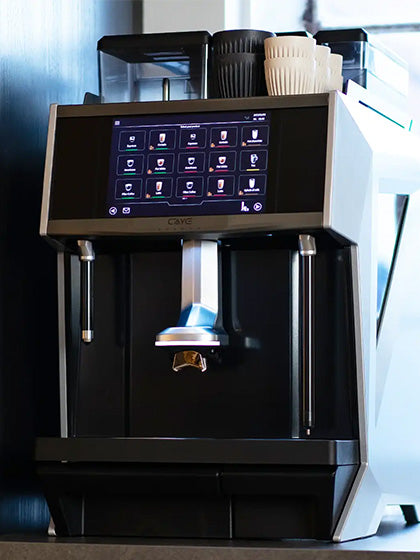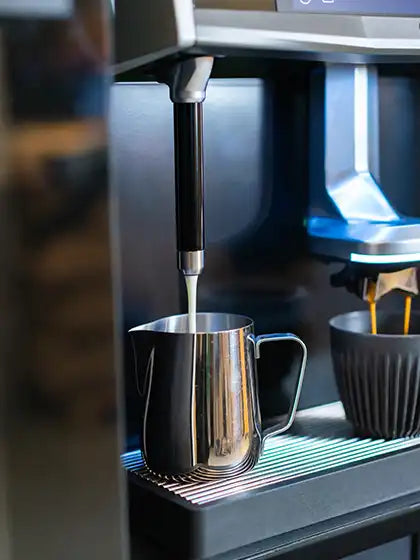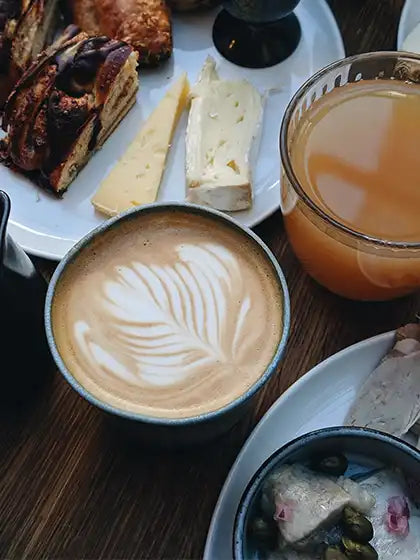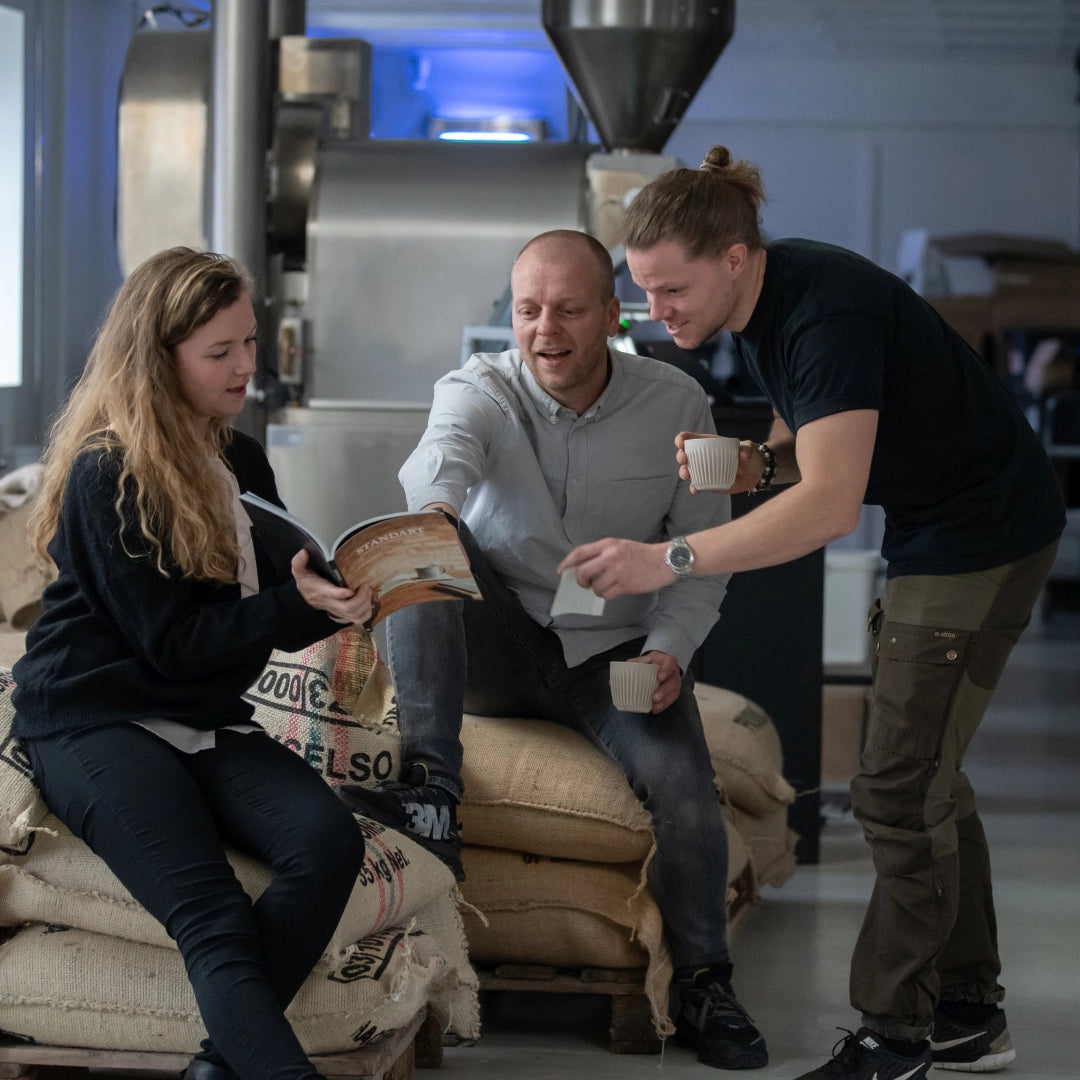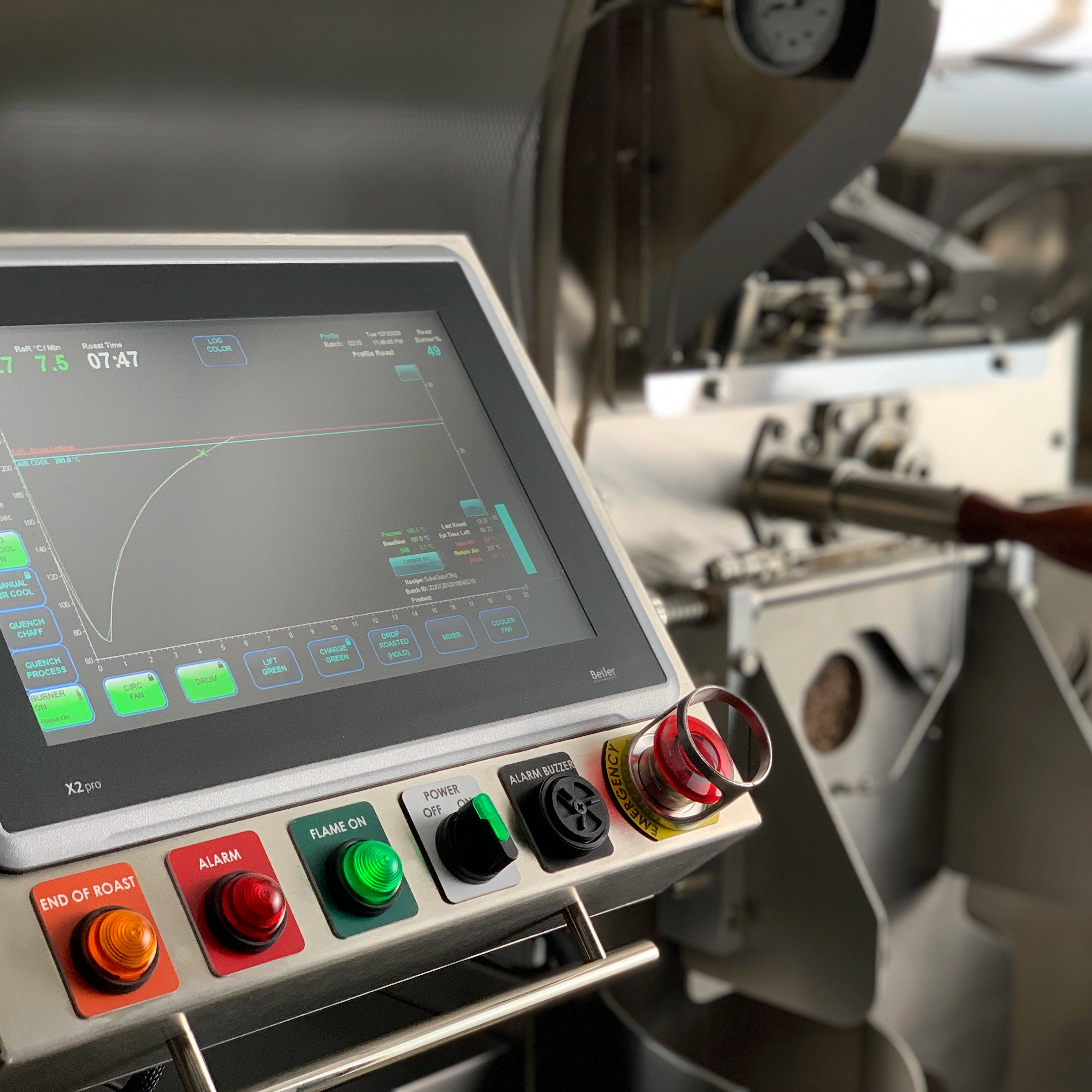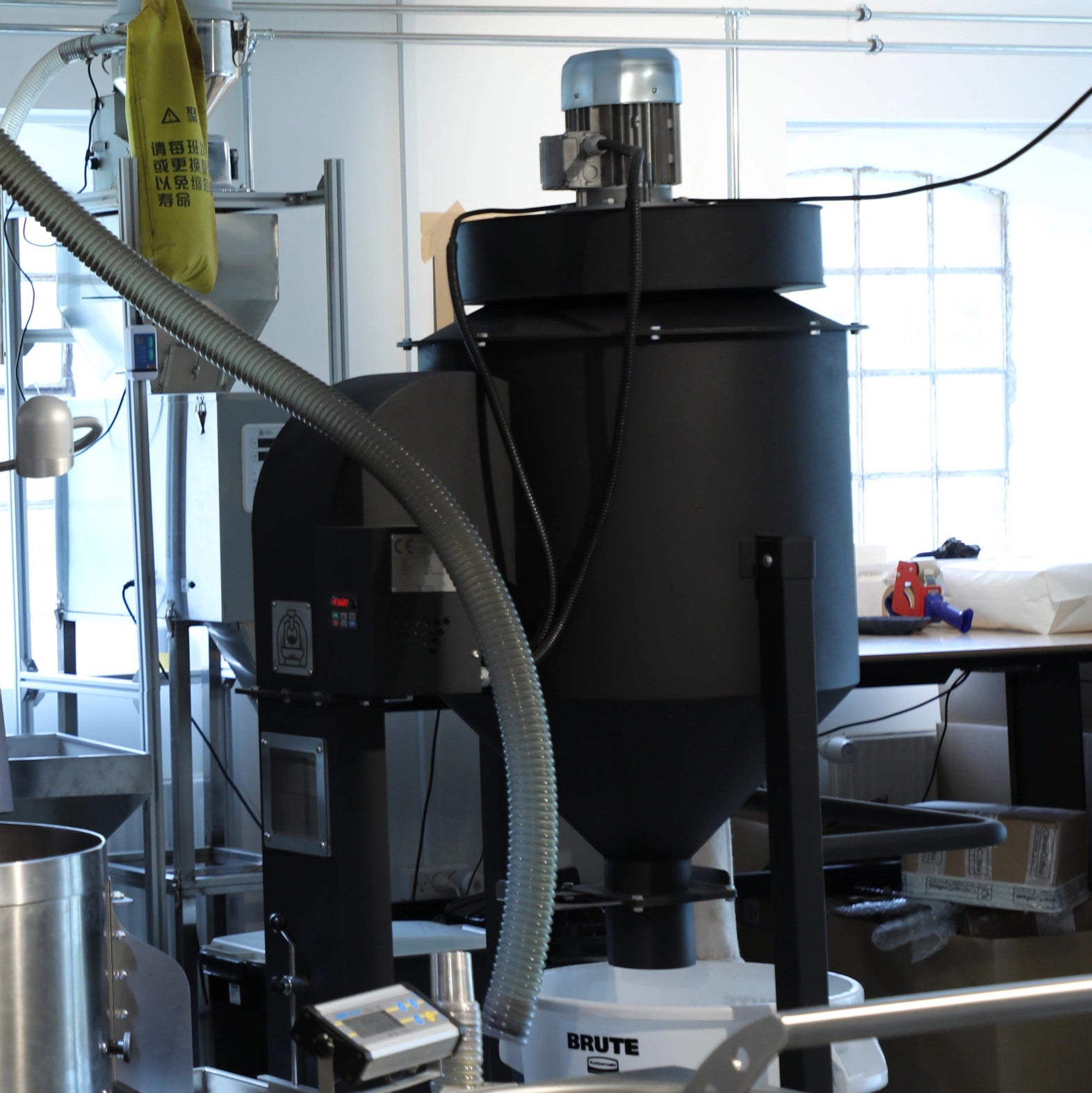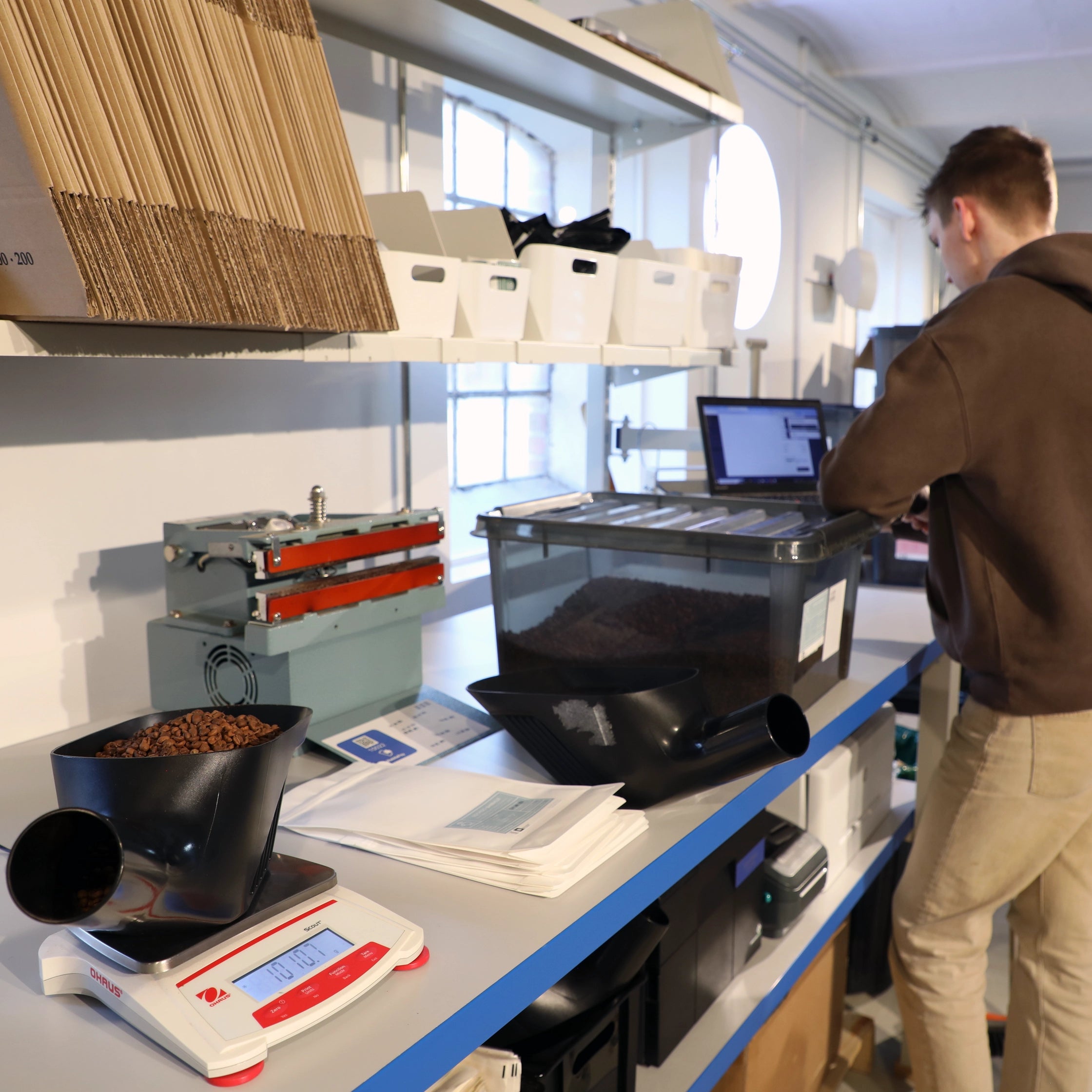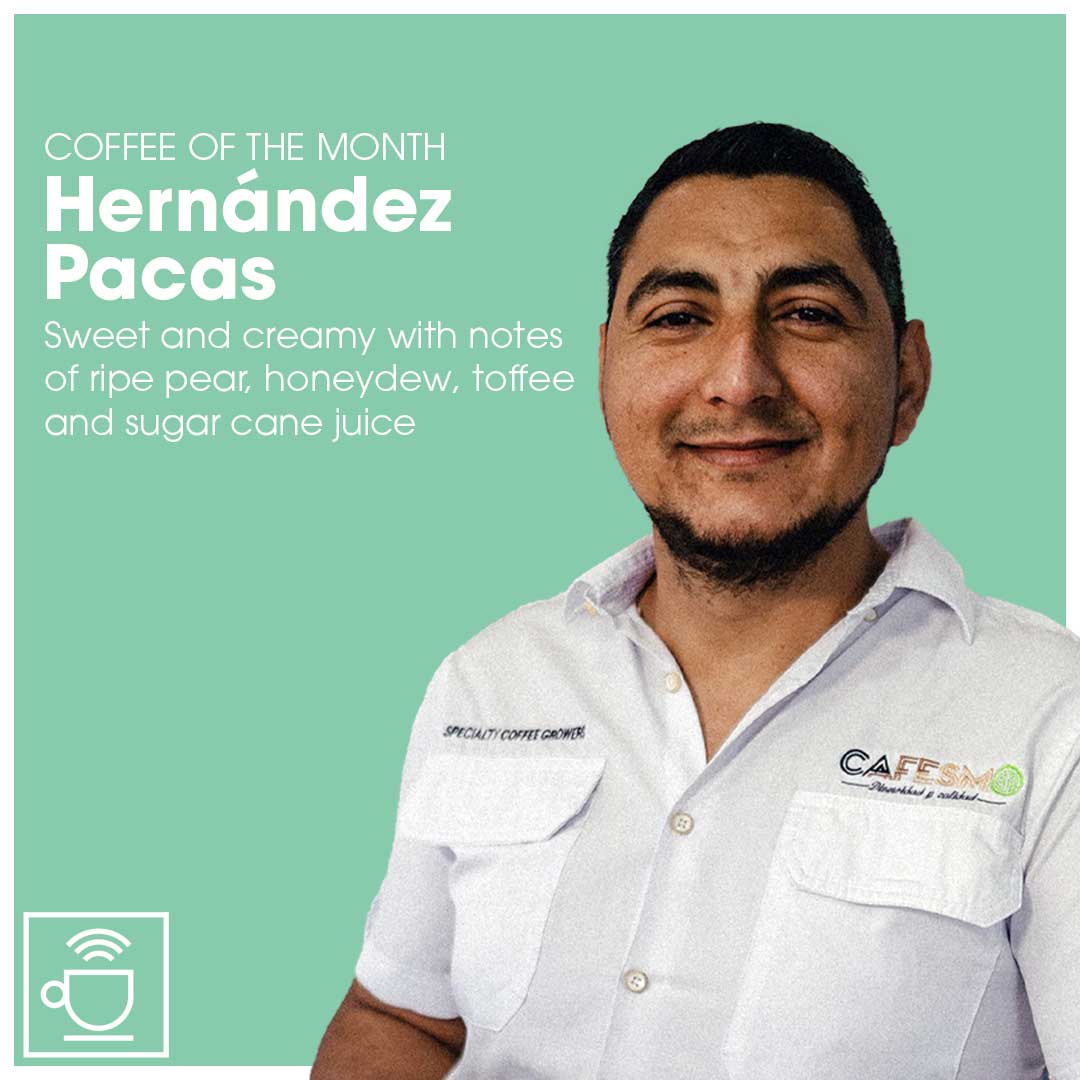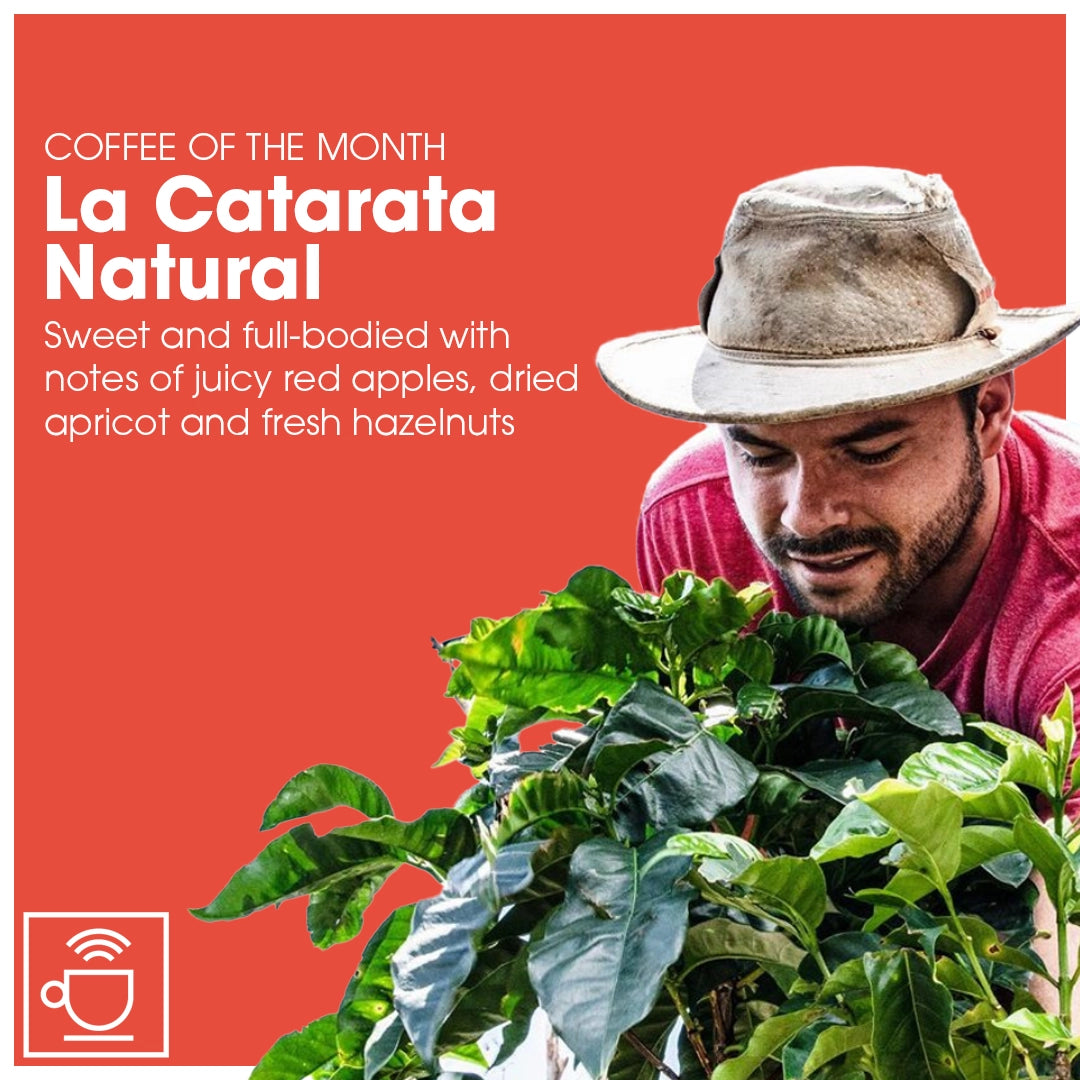Take a Look Behind the Curtain
This is Freja, our brand new roasting assistant, and she's here to tell you what it's like to work as a roaster.
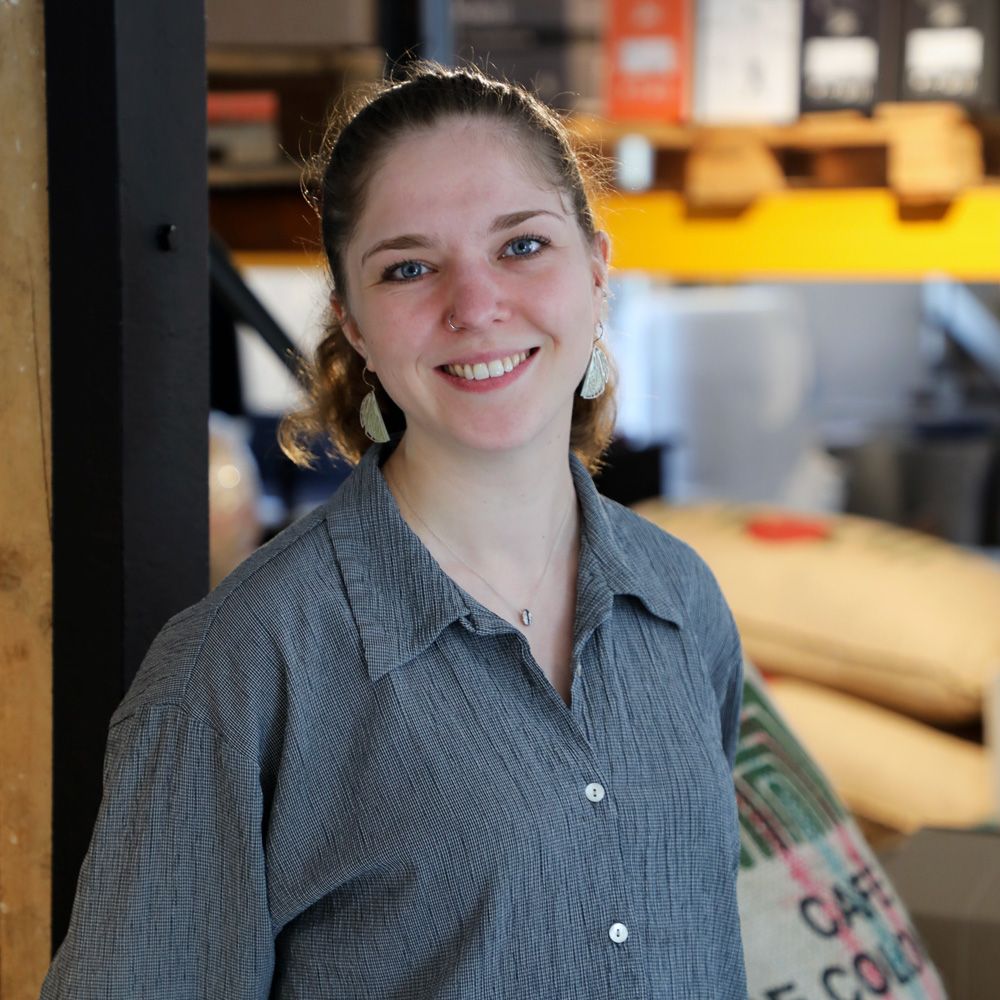
How I Became a Roaster
We're surrounded by coffee every day and yet most of us don't know about the process of producing coffee – I didn't either, despite having worked as a barista for more than a year.
I started working in a coffee roastery in 2017 and quickly realised how little I actually knew about what each bean goes through before coming together to make a delicious cup of coffee. One big surprise was how quickly a batch of coffee is roasted.
I imagined it would take several hours – it took roughly 12 minutes.
The more I learned about the process, the more fascinated I became. When I finally got behind the roaster myself, I learned about terms like First Crack, Developing Time, Over/Under Development and so on. There were so many ways to tweak how the beans were roasted, and even an added two seconds could make a difference to the flavours! It was amazing!
The weekly Quality Control (QC) cuppings in the roastery helped highlight the distinct flavour profiles of each origin. The more I cupped, the more I understood the roasting process and the qualities of the different origins.
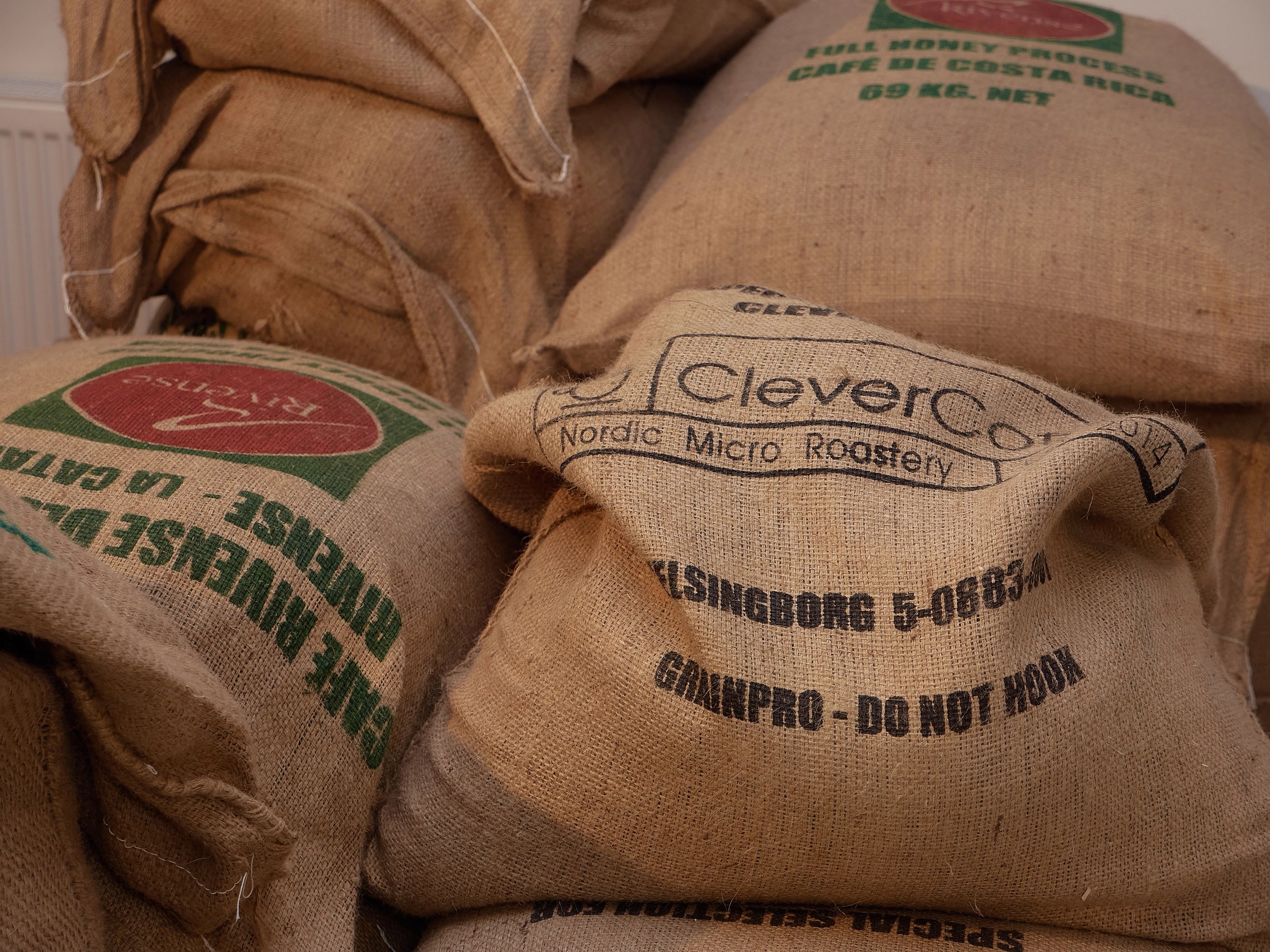
The Green Coffee Importer
After a few years as a roaster, I applied for a position in the lab of a green coffee importer to go one step further into the supply chain. I learned so much about what happens before the green beans arrive at a roastery.
I learned about the challenges the producers face in different origins, how a country’s economy can rely heavily on their coffee yield and how some processing methods are distinct to specific origins.
I roasted and tasted types of processing I didn’t even know existed, learned about different defects in coffee, and got to talk to some very experienced coffee people, including coffee producers.

Joining CleverCoffee
Now I’m happy to be a part of the CleverCoffee team.
In some ways it feels like a combination of my two previous workplaces – the roastery and the green bean importer. I get to roast a lot of quality coffee on a daily basis and do QC cuppings. At the same time, I can learn more about the producers and their side of the industry because we mainly do direct trade and have direct communication with producers.
Being a certified B Corp, CleverCoffee has a strong focus on transparency, sustainability (both environmental and social) and overall decency. In the coffee industry these topics are present but with CleverCoffee I’m experiencing a whole new level of responsibility and there’s so much to learn.
A Typical Day in the CleverCoffee Roastery
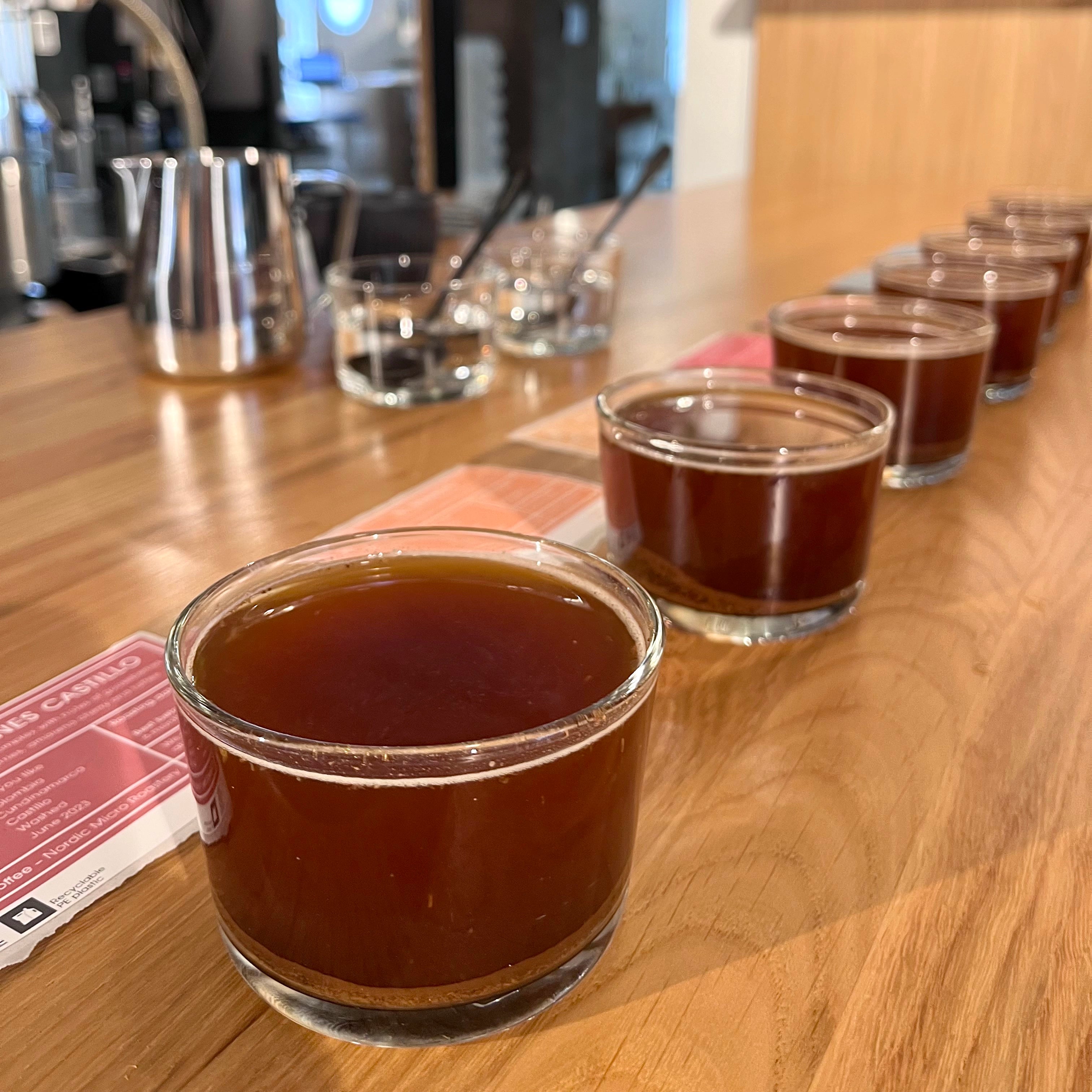
Cupping Sessions
We aspire to do a cupping once a week.
There are many different focus points that can be chosen for a session.
Sometimes we get a new offer sample and we need to evaluate whether to buy it or not. If we want to buy it, we then talk about how we should approach the roasting.
Another focus point can be to check if an in-stock coffee is starting to show signs of deterioration and if so, which measures we should take in the upcoming roast.
A third can be to simply check the lineup we offer to our customers – is the range wide enough, which coffee is good for which type of customer, whether we are calibrated as a team, etc.
When I say "calibrated", I mean whether our flavour vocabularies and perceptions match.
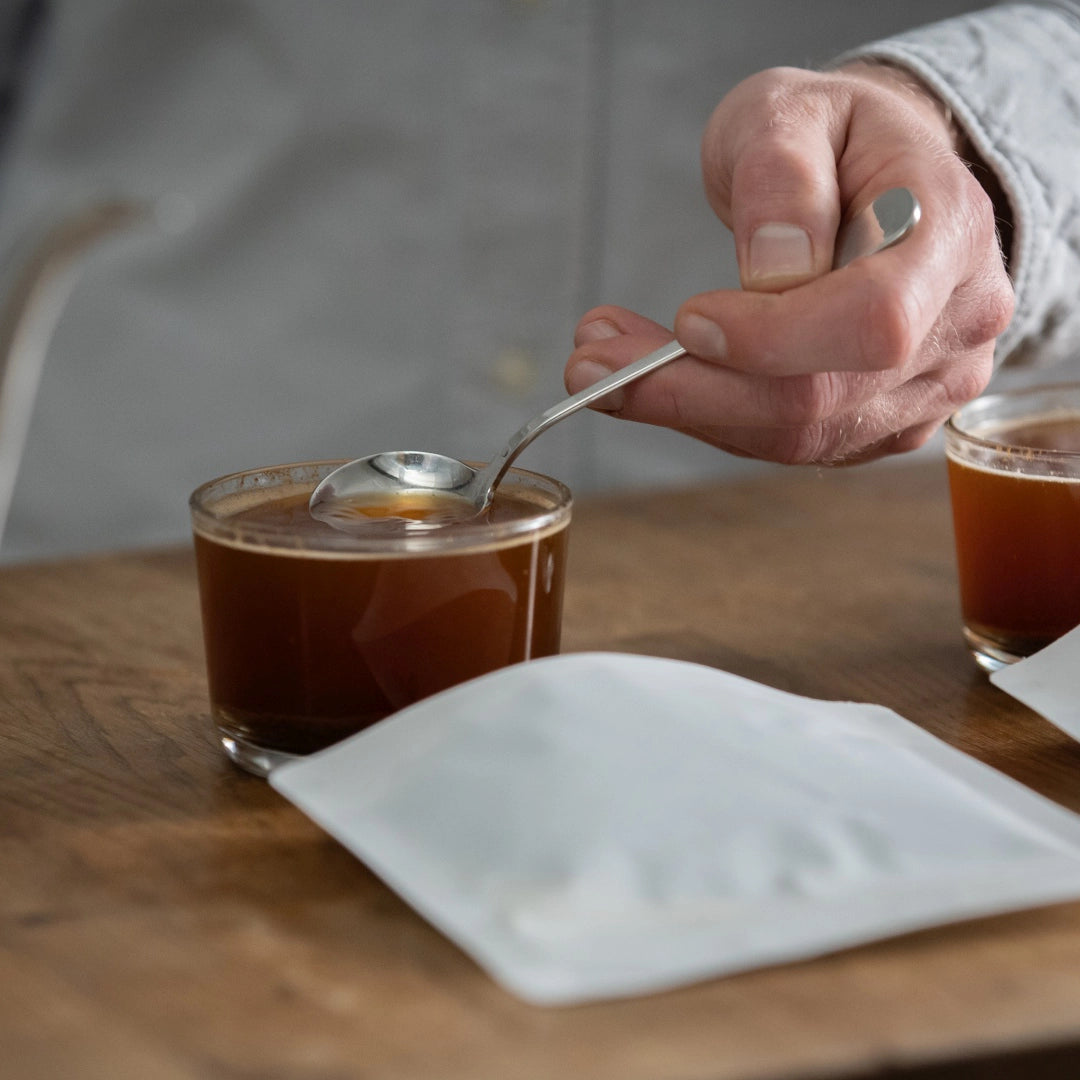
Flavour Calibration
It’s always exciting to cup with new people because everyone has their own “flavour archive”.
What I might describe as lemon balm, someone from Japan might describe differently because lemon balm is not common there – this doesn’t mean that any of us are wrong. It simply means that we need to find a common flavour vocabulary to understand each other.
Cuppings can spark very interesting conversations about mouthfeel, sweetness or whether a flavour trait is positive or negative.
I’ve noticed that since I started cupping a lot, I eat new things differently too.
If I’m introduced to a new fruit, I think about where to archive the different sensations in my brain – does the acidity/sweetness remind me of a certain origin, does the mouthfeel stand out in any way and so on. I also like to revisit fruits and other foods I haven’t had in some time to “refresh” my flavour archive.
What the Future Holds
The specialty coffee industry is still relatively new but it is changing rapidly.
The consumers are learning more and more about the product and with this new knowledge, they demand more in terms of transparency, ecological certifications and information about the specifics of each coffee.
With the already massive consequences of climate change, a lot of producers have to rethink their practices and adjust to the new challenges while also trying to comply with customers’ demands. They could be facing new plant diseases, have a smaller yield than usual because of massive rain or drought, they might need to try other variants than the ones they used to grow, etc.
All while being severely underpaid.
This is why I’m proud to be a part of a company that has been focusing on these challenges from the start and not just when EU Regulations forced their acknowledgement.
CleverCoffee works closely with the producers and together they look for more sustainable ways of working in our industry – both for the people and the environment. They take responsibility with the producers instead of giving demands.
I’m so excited to learn more about our industry and how we as a roastery and a certified B Corp can be a positive part of the change that needs to happen.

